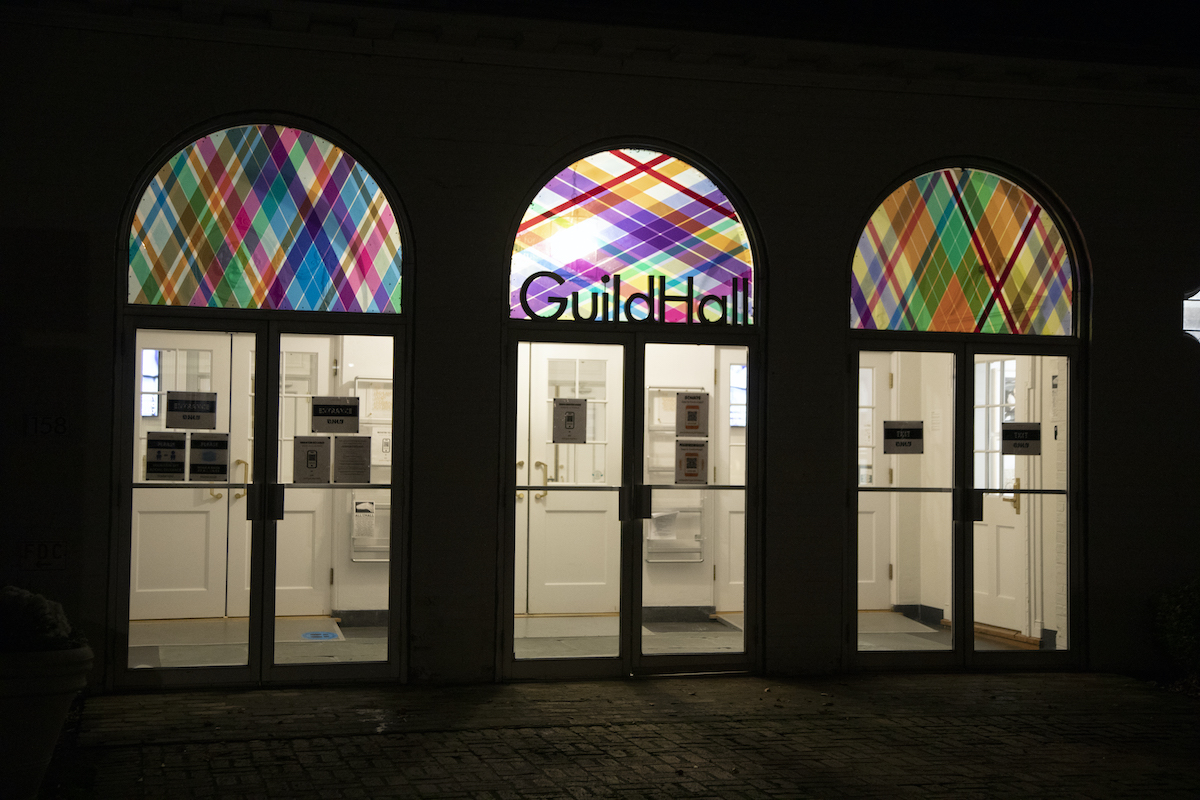A Winter's Tale: Hamptons Arts Groups' Unprecedented Season

In October, the Broadway League announced that the Great White Way would remain closed until May 30, 2021. The extended closure, due to COVID-19, is a huge hit to the performing arts industry, putting thousands of people out of work, from actors to technicians. On the East End, where performing arts thrive year-round, theaters have had to get creative and figure out a way forward, despite an uncertain set of obstacles.
The performing arts industry as a whole has received very limited guidance from the government on how to move forward, despite other businesses and industries being allowed to reopen. “Phase 4 has come and gone and I respect that theater feels high-risk, but we’re watching casinos again to 25% and you can’t help but question what’s essential about that versus the arts we’re providing for people,” says Artistic Director Julienne Penza-Boone of the Westhampton Beach Performing Arts Center (WHBPAC). “We’re not demanding that theaters be open to 100% capacity but what we want is to at least have some guidelines. We’ve come up with plans on our end, but we need the state to work with us and certainly as long as we’re not allowed to reopen, we’re going to need some help.”
Southampton Arts Center Executive Director Tom Dunn notes that plans need to come from the top “The federal government has a lot more to do with regard to the entertainment and cultural sector,” he says. “Follow the lead of the United Kingdom, for example, where they had a stimulus package designed specifically for arts and culture and entertainment.”
The theaters on the East End have come together during this time and are advocating for one another. The Hamptons Arts Network (HAN), which includes 19 different organizations throughout the East End, worked together to stay afloat during the quarantine and continue to do so. “During the height of the pandemic, we had a standing weekly call with all 19 members of the Hamptons Arts Network where we helped each other navigate the federal relief,” says Dunn. “We all shared our reopening plans with one another. We all have the same intention. We’re stronger together and don’t view each other as competition.” Penza-Boone has her staff calling the governor’s office daily.
While some of the venues can now open for film screenings at 25% capacity thanks to new Long Island guidelines, that’s not necessarily the answer for all. “We are a screening facility, we have high definition projection,” says Artistic Director Josh Gladstone of Guild Hall, “We qualify as a site that could do screenings. But we are choosing not to, because we still are very concerned about the health and wellbeing of our patrons, audience and staff. We feel it’s premature to reopen a movie theater at this time while a spike is potentially happening again.” Gladstone isn’t the only one that feels this way; Sag Harbor Cinema has not set a reopening date, and Regal cinemas have closed nationally.
For Guild Hall, which will celebrate its 90th anniversary in 2021, performing arts will be virtual for the winter and outdoors when it gets warmer. “We intend to reopen in May with a much broader slate of socially distanced outdoor programs in our outdoor theater,” says Gladstone. “We’re going to have to be creative. We will continue with our virtual offerings. Because film and television production is ratcheting up again, we’re going to pivot to more online streaming from the theater. We can stream as if we were a production studio.” Gladstone adds that there are currently no plans to reopen the John Drew Theater in 2021 “unless we get some amazing news about a vaccine being wildly available. I’m hopeful we’ll work with some amazing outdoor programs with our sponsors as benefits next summer. The next few months are going to be online. That’s where it’s at for us.”
“It’s going to be tough,” says Bay Street Theater Executive Director Tracy Mitchell. The theater—which recently announced the purchase of a major property to build a new, permanent space—has gone virtual for the time being. “We’re trying to keep plowing forward and producing new things,” she says, adding that the theater is trying to keep their artists employed. “Even if we can’t be with each other, we can ask the community, ‘how are you? Are you okay?’”
But despite the restrictions and challenges, “It’s still very optimistic,” says Penza-Boone, who continues the push of virtual programming. She is hopeful that the arts community will continue to persevere and thrive. “We know the comeback is going to be extraordinary.”



